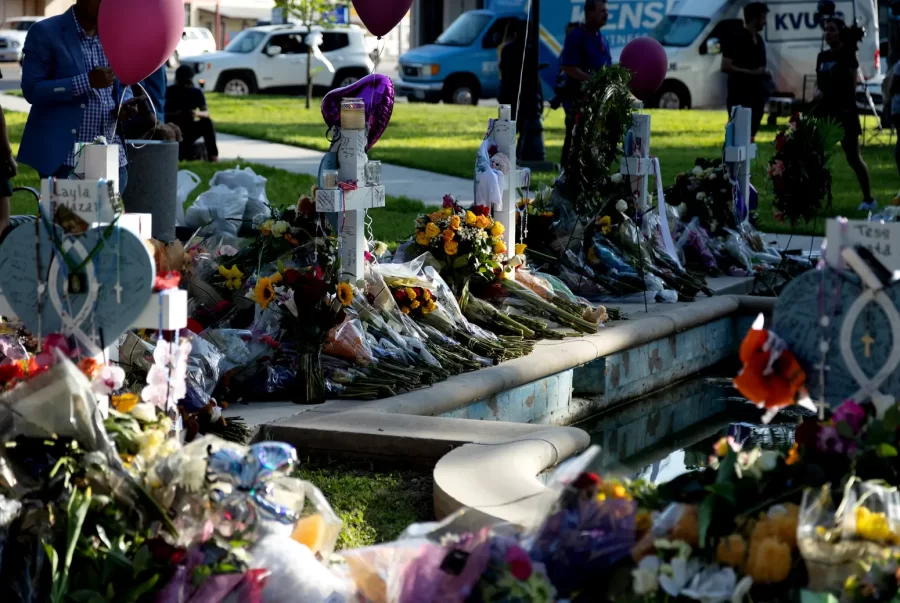What are we doing to our young men?
With a death count of 21, the school shooting at Robb Elementary in Uvalde, Texas was named the third deadliest school shooting in the United States, according to Time Magazine.
Similar to previous school shootings, the shooter was male. According to The Violence Project — a nonpartisan research center dedicated to reducing violence in society — 98 percent of school shooters are male.
So why is there such disproportionality when it comes to male school shooters? What are we as a society doing to young men?
Unsurprisingly, the answer lies in not being able to foster healthy masculinity. Instead of teaching boys and men to deal with their emotions, we force them to adopt a harmful way of thinking: men are strong, and if you aren’t strong, then are you even a man?
Jillian Peterson, co-founder of The Violence Project, states that this issue is uniquely American.
“The ideology of masculinity is not all that different in Spain or Britain than it is here. But they don’t have mass shootings like this,” Peterson said. “Why? I think that has to do with a specific version of American masculinity.”
According to the American Psychological Association (APA), “American society socializes boys and men to conform to a definition of masculinity that emphasizes toughness, stoicism, acquisitiveness and self-reliance.”
These ideals often manifest themselves inside our society’s boys and men, leading them to hurt their communities in an effort to prove themselves.
As a motive for a shooting in an Indianapolis FedEx facility that killed eight people and injured at least seven others, the FBI said the gunmen “believed [he] would demonstrate his masculinity and capability of fulfilling a final desire to experience killing people.”
In addition, this cycle continues due to the idolization of male perpetrators by aspiring male shooters. When those who wish to commit a crime of the same caliber see themselves in previous school shooters, it often leads them to become a “copycat”. This is especially seen with the Columbine high school shooting.
“Several school shooters in our study were fascinated with Columbine and researched the massacre before their own,” Beth Daleu said in an article for The Conversation about how the Columbine high school shooting was a blueprint for the ones that followed.
So how do we fix this?
Prevention is key. We need to be teaching our young men how to deal with their emotions and focus on fostering healthy masculinity. This will in turn force young men to look for healthy outlets to express their anger, rather than turning to guns.
We as a society also have the responsibility to look out for others, and a great way to do this is by receiving training on how to recognize when someone is in a crisis. By referring them to someone who can help them manage their emotions and calmly work through their problems, we can show young men that guns are not the only answer.




